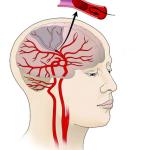Does the media have it right, did a new study show that drinking 2 or more artificially sweetened beverages a day result in a greater risk of stroke? I don’t think so, but here is the information, you decide.
coronary heart disease
All you have to do currently to encounter an influx of negativity and persistent “what ifs” or anxiety is turn to social media or any news outlet. This pervasive, chronic theme—no matter where you fall on the political spectrum—has been ever
We at ACSH have been screaming into the wind about the folly of the s
Whenever I have visited a physician over the last decade, the following scenario has been replayed: We discuss my cholesterol levels (total, LDL and HDL). We review dietary guidelines and other medical recommendations.
Through the ages, conventional wisdom has been that the moderate intake of alcoholic beverages is consistent with a long and healthy life.




